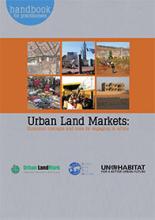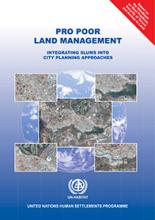Land Library Search
Through our robust search engine, you can search for any item of the over 73,000 highly curated resources in the Land Library.
If you would like to find an overview of what is possible, feel free to peruse the Search Guide.
/ library resources
Showing items 1 through 9 of 10.The Feasibility Discussion Paper is a key output of the feasibility phase of the NUP process in Liberia. It explains the context in which the policy will operate.
This case study analysis forms part of the publication series “Unpacking metropolitan governance” that documents experiences and gives hands-on approaches for stakeholders in the field of sustainable development of metropolitan regions.
The land challenge is central to the broader youth dynamics of migration, employment, livelihoods and belonging. The more than 1.8 billion youth living worldwide represent not only a land challenge, but an untapped potential in moving the tenure security agenda forward.
In the vast majority of countries land and housing affordability is a critical contemporary challenge.
UN-Habitat and GIZ have developed the Metropolitan Capacity Assessment Methodology (MetroCAM) as a joint contribution to implement urban sustainable development agendas and bring them to the metropolitan scale. It complements the Unpacking Metropolitan Governance series.
Countries in the Latin America and Caribbean region were the first in the developing world to go through rapid urbanization.
This Handbook introduces key economic and related concepts explaining the functioning of urban land markets. You will find in this Handbook tools for engaging in a critical analysis of conventional economics, particularly in the understanding of how African urban land markets work.
Throughout history, conflicts have been waged over land. Confrontations over territory, border disputes, occupation of the territory of one State by another, or grievances stemming from inequitable access to land invariably have dramatic consequences for human settlements.
This publication on Pro Poor Land Management is based on the Handbook on Best Practices, Security of Tenure and Access to Land. It briefly describes recent innovations at the global level in the field of pro poor land management.









